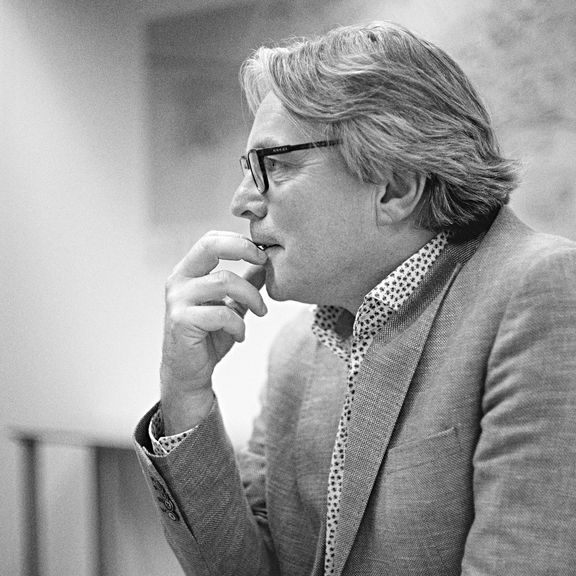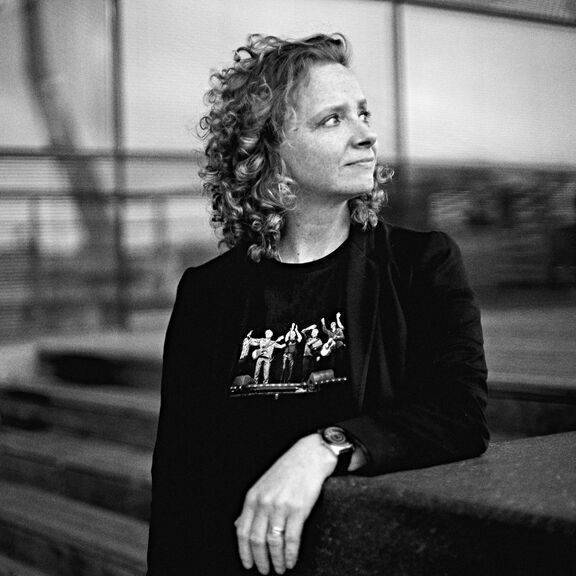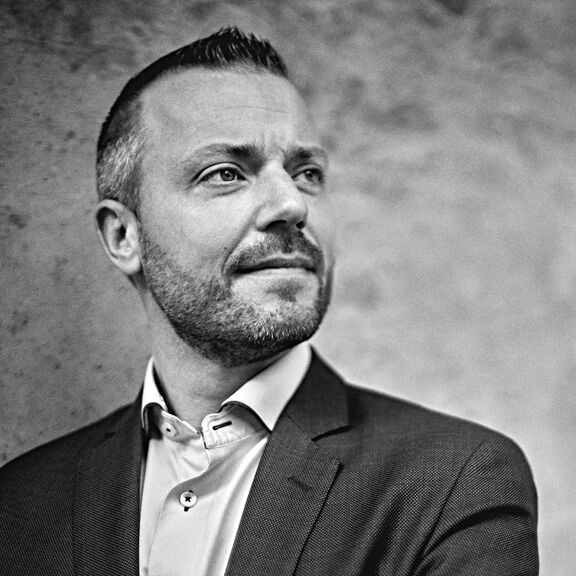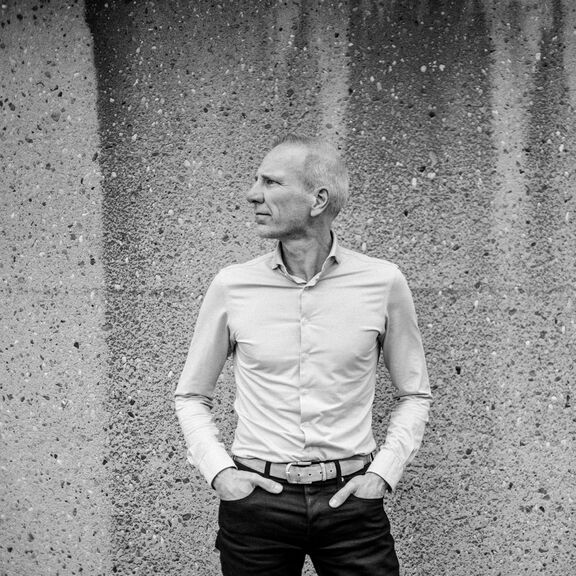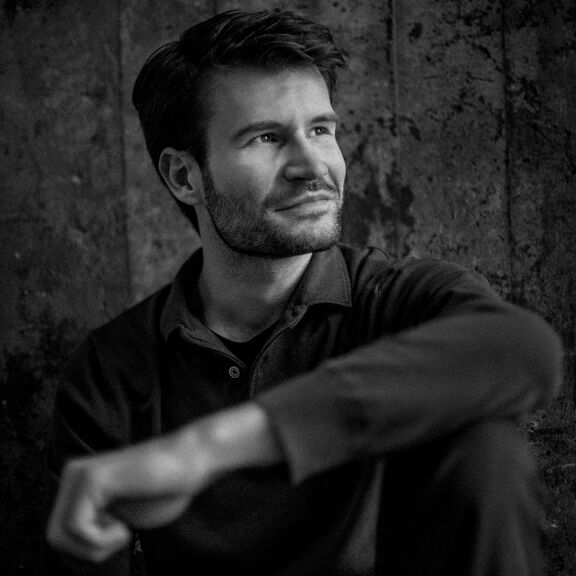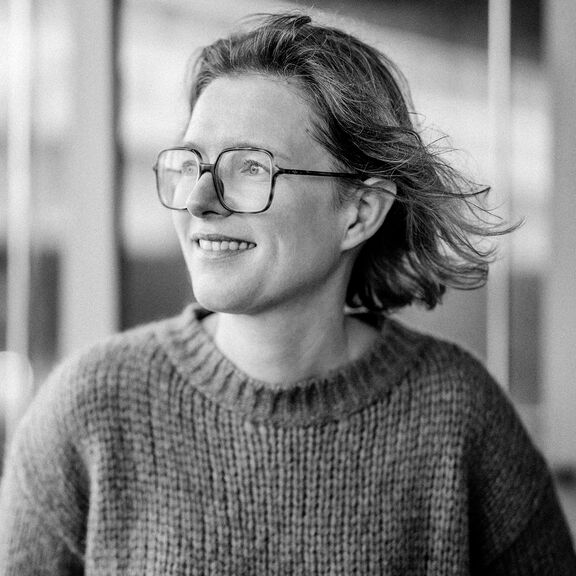‘I want to be at the forefront of the energy transition and give something back to society’
Reading time: 6 minutes
During his career, he has lived in England, India and China and therefore knows that developments sometimes move slowly, however they can also move quickly. Mark Stoelinga, the energy and infrastructure manager at the Port of Rotterdam Authority, is keen to hit tangible goals: ‘Kicking off the whole flow towards hydrogen: that’s my goal.’
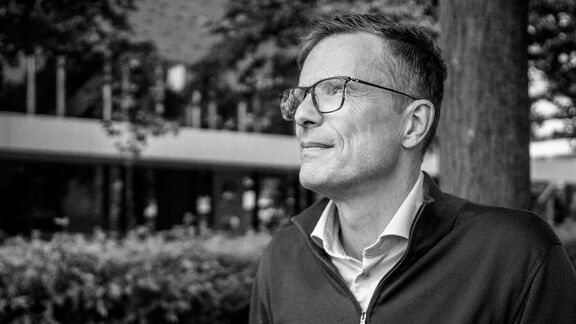
‘I want to see the entire supply chain in action: ranging from production in a faraway country to arrival in Rotterdam, the cracking and the hydrogen in a pipeline to the client. That would be fantastic,’ says Mark, who started at the Port of Rotterdam Authority three years ago. As business manager, he focused on establishing the hydrogen network in the port. He has been leading the Energy & Infrastructure Team for just shy of a year. He and his team are committed to developing new energy flows and the necessary infrastructure, for example the arrival of hydrogen and pipelines. ‘It can be difficult at times. An outsider could think that hydrogen is going to solve our problems. People underestimate how much time it requires. However, the scale in the port is enormous. The required projects are enormous. And at the same time, the start up with sustainable electricity was also difficult, while it is currently often cheaper than fossil fuels, thanks to encouraging government policy and companies’ courage. But you need patience.’
Proactive instead of reactive
Mark is realistic and at the same time extremely motivated to contribute. For years, he and his wife worked abroad for Air Products. Ten years ago, the family returned so that his children could grow up in the Netherlands. ‘At the time, I started working for a major engineering firm and got reacquainted with Dutch industry. Around 2020, I decided it was time for something different. I wanted to be at the forefront of the energy transition: be proactive rather than reactive.’ He decided to start working for Air Liquide before later taking the step to the Port of Rotterdam Authority. ‘I want to give something back to society. That is what I want to focus on for the rest of my career. What can we do together to limit the consequences of climate change as far as possible? It is not simple, but I want to contribute to that.’
Clear goals
The goals are clear: a CO2-neutral Europe by 2050. Mark: ‘I see a cleaner, better and healthier world ahead. The rise in temperature is extremely dramatic. You see increasingly more phenomena. We are well on our way in the wrong direction.’ How does he stay positive? ‘I try to break it down into small chunks. It’s important to me to actually achieve something. You have to start somewhere.’ He mentions the hydrogen pipeline from the port of Rotterdam to Chemelot and Germany, ‘It is so important to start with that now. Especially since it has just been announced that the following step, the Delta Rhine Corridor, is delayed. That is a hard pill to swallow.’ That has a specific meaning for Mark: ‘In 2030, I want to see green ammonia being imported to Rotterdam, that we crack it into hydrogen here and transport it to the hinterland and Germany. We are a significant energy port for Germany, and we want to continue in that role but then for green energy.’ That means the import flows must gain traction and more electrolysers need to be built across the globe. ‘So much needs to happen. But as I have seen during my years abroad, things can move quickly, if there’s support.’
‘I try to break it down into small chunks. It’s important to me to actually achieve something. You have to start somewhere.’

Hydrogen carrier
Ammonia is considered to be an important hydrogen carrier. ‘It is a chemical that is already produced in large quantities. I think it’s about hundreds of millions tonnes a year.’ According to Mark, it is easy to store, simple to transport, can be landed well and easily transhipped. ‘It is available. People are familiar with it.’ At the same time, it means that people cannot treat this substance lightly: ‘Everything needs to be arranged clearly and safely above all. We are committed to that as a Port Authority and collaborate with our partners to that end. As a Port Authority, we work together with companies, municipalities, Rijnmond Environmental Protection Agency, ministries as well as with Brussels. Mark’s role is to assess whether the port is ready for what is to come.‘I believe we will be ready in time. We have started in good time. With good preparations now, we will be able to handle ammonia safely, just as we already do with so many different substances.’ But we will be dealing with larger quantities and that is new and different for everyone. ‘I understand that people have questions. We are therefore organising residents’ evenings. We are active in NOVEX, the spatial planning for the Rotterdam region in which we work together with local, regional and national governments. Because how can you combine a residential area with the energy transition and new substances? That’s something we take very seriously.’ We know things are going to change. Mark: ‘It’s a transition. There will be more solar panels, more offshore wind, more electrolysis. Heat will be used. Hydrogen will be produced. Digging will be required. All kinds of initiatives will arise. I honestly think it’s amazing to be involved in this. With this transformation.’
Time to give
Mark learnt numerous lessons during his years abroad. He understands there are people who have never enjoyed luxury activities such as holidays and flying, and that they would like those experiences now. ‘I believe that in the Western world we have profited from all raw materials and sources for a long time. It’s time to give instead of take.’ He notices that government measures are working: ‘If energy is expensive, people suddenly take the train more often and use less heating. We can do it, but it doesn’t happen by itself.’ At home, he and his family try to support many green initiatives. He doesn’t eat meat at home, goes on holiday by train, doesn’t have a car, and you can see him cycling over the Erasmusbrug on his way to work each day. ‘I think we are well on our way, but you must be prepared for the long haul.’

‘A sustainable port: that’s simply fantastic’
What does the port of the future look like? ‘I’m an engineer and a realist. Not much will change in terms of what it currently looks like. But the things you don’t see, in the engine room, plenty will change there.’ He mentions vessels, companies on other fuels and raw materials and everything that’s in the pipelines. ‘That’s currently fossil fuels. They will be sustainable in 25 to 30 years and that is simply fantastic.’ Mark: ‘You’ll see coal disappear and be replaced by other things. Factories will continue to exist. We will still see the chimneys, but they will discharge water vapour. And of course, we are going to capture CO2 with Porthos.’ Green illustrations with whooshing trains? Mark doesn’t necessarily think that’s needed. ‘As long as you know what’s happening under the bonnet. I do think there will be more greenery on roofs. But people want more space for the energy transition. Space we don’t have available everywhere. The game never stops.’
If Mark ever leaves the Port of Rotterdam Authority, he wants to leave a legacy. He mentions an example from the past year, when bio-ammonia was transported from the United States to Germany via Rotterdam in a pilot. ‘That’s brilliant. If we can demonstrate that we can also do that with hydrogen by 2030, I would be extremely satisfied. Kicking off the whole flow: that’s my goal.’
Making waves
In this series, you’ll hear from people who are committed to a smart and sustainable port of Rotterdam and our planet as a whole. Let them inspire you and help make that a reality.
